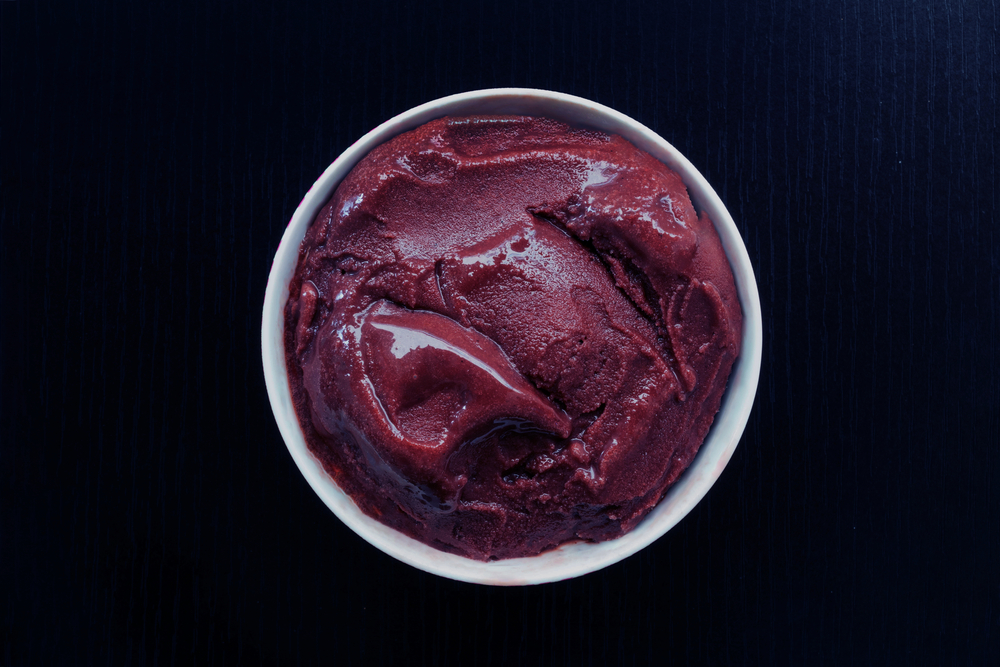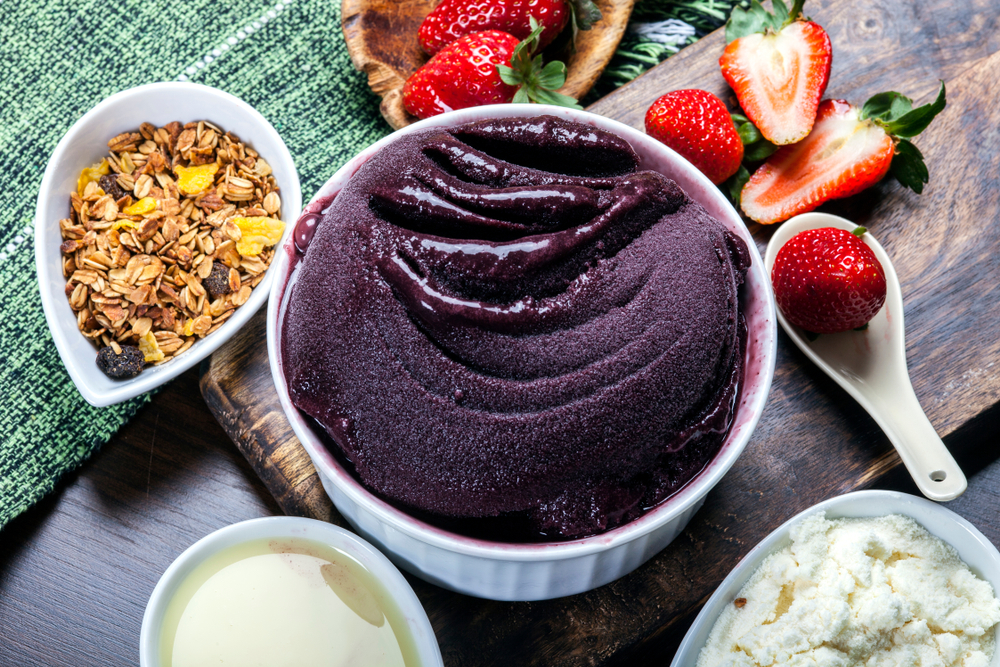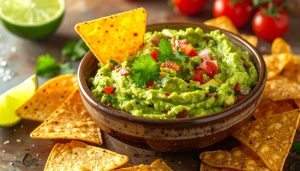No, acai berries are not effective for weight loss.
Despite widespread marketing claims, no peer-reviewed scientific studies support acai's weight loss benefits, and major health organizations including the National Center for Health Research and Federal Trade Commission have confirmed these claims are false.
Keep reading to discover what the actual research shows, why the marketing exists, and what really works for sustainable weight loss.
The Scientific Truth About Acai and Weight Loss Claims
When you look at the official stance from health authorities, the verdict is unanimous and unambiguous.
The National Center for Health Research, the National Center for Complementary and Integrative Health (NCCIH), and the Federal Trade Commission have all confirmed that acai weight loss claims are categorically false.
This isn't a matter of conflicting research or differing interpretations—it's a complete absence of credible evidence.
No peer-reviewed studies published in the last five years support any weight loss benefits from acai berries. Zero.
The broader context reveals why this matters:
- Current obesity statistics expose the fundamental flaw in acai marketing—if any quick-fix weight loss product actually worked, we wouldn't be facing rising obesity rates across the nation
- Scientific consensus confirms that no single food, regardless of its nutritional profile, can solve weight loss independently
- Regulatory action demonstrates that authorities actively monitor and debunk these false claims to protect consumers
You're not missing out on some revolutionary weight loss secret by skipping acai products.
The absence of evidence isn't due to lack of interest or research funding—it's because the promised effects simply don't exist.
Even nutrient-dense foods like acai, while valuable for overall nutrition, cannot override the fundamental principles of energy balance that govern weight management.
The disconnect between marketing promises and scientific reality couldn't be starker, which is exactly why multiple federal agencies have taken the unusual step of issuing explicit warnings about these products.
What the Only Human Study Actually Revealed (And What It Didn't)
The most frequently cited research supporting acai weight loss claims is a 2011 pilot study that marketers routinely misrepresent.
When you examine what this study actually measured and found, the disconnect becomes immediately apparent.
Study Parameters: The research involved just 10 overweight adults who consumed 100 grams of acai pulp twice daily for exactly one month.
That's the entire scope—10 people, 30 days, no comparison group.
What Researchers Actually Measured vs. What They Found:
✓ Measured and improved: Fasting glucose levels and insulin response
✗ Never measured: Body weight, fat loss, or any weight-related metrics
✗ Never found: Any actual weight reduction or body composition changes
This distinction is critical.
The study wasn't designed to test weight loss, didn't measure weight loss, and consequently found no weight loss effects.
Yet this same study appears in countless marketing materials as “proof” that acai promotes weight reduction.
The study's design flaws make even the glucose findings questionable.
Without a control group receiving a placebo, researchers couldn't determine whether any improvements came from the acai itself, dietary changes participants made during the study period, or simply the placebo effect of believing they were consuming something beneficial.
Timeline and Scope Limitations:
- 30-day duration provides no insight into long-term effects
- 10 participants create statistically meaningless sample size
- Uncontrolled design eliminates ability to establish causation
The researchers themselves acknowledged these fundamental limitations, explicitly stating that “further studies are warranted” before reaching any conclusions about acai's health effects.
This cautious language from the study authors directly contradicts the definitive weight loss claims you see in marketing materials.
What makes this misrepresentation particularly misleading is that metabolic improvements like better glucose control, while potentially beneficial for health, don't automatically translate to weight loss.
You can improve insulin sensitivity without losing a single pound.
Why Theoretical Weight Loss Mechanisms Fail in Reality
Marketers selling acai weight loss products don't rely on proven effects—they rely on theoretical possibilities that sound scientifically plausible but crumble under practical scrutiny.
When you examine these proposed mechanisms, the gap between laboratory theory and real-world results becomes starkly apparent.
The Fiber Fallacy
Acai does contain fiber, and fiber can promote satiety by making you feel fuller.
This logical connection allows marketers to suggest acai might help with weight control.
However, the math exposes the absurdity of this claim.
You would need to consume what experts describe as “a frankly ridiculous amount of acai berry every day” to obtain enough fiber for any meaningful weight loss benefits.
We're talking about quantities that would be both financially prohibitive and nutritionally unbalanced—amounts no reasonable person would ever consume as part of a normal diet.
The Magnesium Misdirection
A 2021 meta-analysis did demonstrate that magnesium supplementation can reduce BMI and body weight.
This legitimate research creates an opening for acai marketers who point to the mineral content in their products.
The reality check: Acai berries don't contain meaningful amounts of magnesium relative to what the studies used.
The concentrations that showed BMI reduction in research would require consuming massive quantities of acai—again, far beyond any practical consumption level.
The Antioxidant Assumption
Animal studies using anthocyanin-rich acai extracts have shown promise in preventing diet-induced obesity in mice.
This research forms the backbone of many marketing claims about acai's antioxidant properties and weight management potential.
The translation problem: These promising results have consistently failed to replicate in human studies.
What works in laboratory mice under controlled conditions doesn't necessarily work in humans with complex metabolisms, varied diets, and real-world lifestyle factors.
Laboratory Theory vs. Living Reality
This pattern—promising lab results that don't translate to human benefits—represents a fundamental misunderstanding of how scientific evidence works.
Theoretical mechanisms matter, but they're just starting points for investigation, not endpoints for marketing claims.
The supplement industry routinely exploits this gap, taking preliminary research and extrapolating it into definitive product benefits.
You end up with marketing materials that sound scientific while promoting products that deliver none of the promised results.
When researchers design studies to test these theoretical mechanisms in actual people under real-world conditions, the effects consistently disappear.
This isn't a failure of science—it's science working exactly as intended, separating theoretical possibilities from practical realities.
Government Crackdowns on Deceptive Acai Marketing Practices
When federal agencies take enforcement action against supplement marketers, it signals something beyond typical regulatory oversight—it indicates systematic consumer deception serious enough to warrant permanent shutdowns and multimillion-dollar settlements.
Federal Trade Commission Enforcement Actions
The FTC has permanently stopped multiple acai berry weight loss operations through legal action, securing over $9.4 million in settlements.
These weren't minor infractions or paperwork violations—they were comprehensive shutdowns of entire business operations built on false advertising.
The scale of these settlements reflects the extent of consumer harm.
Companies weren't just making exaggerated claims; they were running sophisticated deception campaigns that generated millions in revenue from products that delivered none of the promised benefits.
FDA Safety Warnings
The Food and Drug Administration discovered something even more alarming than false marketing claims: acai weight loss products containing hidden prescription drugs.
Specifically, the FDA found products spiked with sibutramine, a weight loss drug that was banned for safety reasons.
This contamination represents a double deception—not only do the products fail to deliver promised weight loss through acai, but they pose genuine health risks through undisclosed pharmaceutical ingredients.
You're not just wasting money on ineffective supplements; you're potentially consuming dangerous drugs without medical supervision.
Fake News Website Tactics
Marketers developed sophisticated deception strategies using fake news websites with headlines designed to appear legitimate. Examples include:
“Acai Berry EXPOSED – Health Reporter Discovers the Shocking Truth”
These fabricated news stories were designed to look like investigative journalism while actually serving as elaborate advertisements.
The “shocking truth” invariably led to product sales pages, not genuine health information.
This tactic exploits people's trust in news sources and investigative reporting to sell products that legitimate news organizations would never endorse based on the available evidence.
Impossible and Unsafe Advertising Claims
The most telling aspect of acai weight loss marketing is the specific promises companies made—claims so extreme they're both impossible and dangerous.
“Losing 25 pounds in four weeks” represents one of the most common false promises.
This claim is medically impossible to achieve safely through any supplement, yet it appeared repeatedly in acai marketing materials.
Safe weight loss guidelines recommend no more than two pounds per week, making these promises not just false but potentially harmful to people who might attempt extreme measures to achieve impossible results.
The Pattern of Systematic Deception
These enforcement actions reveal a pattern: acai weight loss marketing wasn't just exaggerated—it was systematically designed to deceive consumers through fake news, hidden drugs, impossible promises, and fabricated evidence.
When multiple federal agencies coordinate enforcement actions worth nearly $10 million, they're not responding to minor marketing infractions.
They're shutting down operations that posed genuine threats to consumer safety and financial well-being.
What Health Professionals Actually Recommend for Weight Loss

Health professionals who specialize in weight management offer a strikingly different perspective from supplement marketers—one grounded in evidence rather than wishful thinking.
The Professional Consensus on Acai
David Grotto, RD, author of 101 Foods That Could Save Your Life, captures the expert viewpoint perfectly: “Acai is a nutrient-rich source of antioxidants, much like many other fruits, but there is nothing magical about the fruit to cause weight loss.”
This assessment acknowledges acai's legitimate nutritional value while firmly rejecting the weight loss mythology surrounding it.
Registered dietitians consistently emphasize that no single food—regardless of its antioxidant content or superfood status—can provide a weight loss solution.
Early studies examining acai's effects on weight have been unambiguous: acai has no effect on weight at all.
This isn't a matter of insufficient research or conflicting results—the available evidence shows zero weight impact.
What Actually Works: The Fundamentals
Health professionals recommend focusing on methods with decades of research support rather than chasing supplement promises.
The proven approach combines two interconnected strategies:
Caloric restriction paired with appropriate levels of exercise and physical activity represents the only scientifically validated path to sustainable weight loss.
This isn't glamorous or revolutionary—it's simply what works consistently across populations and time periods.
The beauty of this approach lies in its flexibility.
You can achieve caloric restriction through portion control, food choices, meal timing, or combinations of these strategies.
You can increase activity through structured exercise, daily movement, or lifestyle changes that boost your overall energy expenditure.
Safe Weight Loss Guidelines: The Numbers That Matter
Professional weight management guidelines provide specific targets that keep you healthy while pursuing fat loss:
Maximum safe rate: Two pounds per week
Required caloric deficit: 7,000 fewer calories consumed than burned each week
These numbers aren't arbitrary—they're based on extensive research showing that faster weight loss typically involves muscle loss, nutritional deficiencies, and higher rates of weight regain.
The math is straightforward: one pound of fat contains approximately 3,500 calories.
Losing two pounds weekly requires a 7,000-calorie deficit, which you can achieve through eating less, moving more, or combining both approaches.
Why This Advice Matters More Than Marketing Claims
Health professionals operate under ethical obligations to recommend only evidence-based interventions.
They can't legally or ethically promote products without scientific support, which explains why you won't find registered dietitians endorsing acai weight loss supplements.
When facing rising obesity rates despite countless “breakthrough” products, professionals focus on what consistently works rather than what sounds appealing.
This practical approach may seem less exciting than supplement promises, but it delivers results that actually last.
The gap between professional recommendations and supplement marketing reveals everything you need to know about which approach deserves your time, money, and trust.
Your Action Plan: Smart Decisions About Acai and Weight Loss
Armed with the facts about acai and weight loss, you can now make informed decisions that protect both your health and your wallet.
Here's how to navigate this supplement landscape intelligently.
Red Flags: What to Avoid Completely
Certain marketing tactics signal deceptive acai products that you should reject immediately, regardless of how convincing they appear:
- Acai weight loss products of any kind—the science simply doesn't support these claims
- “Free trial” offers that typically lead to hidden monthly charges on your credit card
- Rapid weight loss promises like “lose 25 pounds in 4 weeks”—these are both impossible and unsafe
- “Cleanse” or “detox” combinations that pair acai with other unproven ingredients
These red flags aren't just marketing preferences—they're indicators of companies that prioritize profit over consumer safety and truthfulness.
If You Want Acai in Your Diet (The Safe Approach)
Acai can be part of a healthy eating pattern, but approach it correctly.
Choose whole fruit forms or fruit purees rather than concentrated supplements or extracts.
This approach gives you the legitimate nutritional benefits—antioxidants, vitamins, and minerals—without the false promises or potential contamination risks.
Avoid acai supplements entirely.
The concentration processes used in supplements not only fail to deliver weight loss benefits but may introduce contaminants or adulterants that whole fruit forms don't contain.
Critical Health Warnings
Contamination risks: Drinking pure, unprocessed acai juice may expose you to Chagas disease due to parasite contamination during harvesting and processing.
This serious health risk exists regardless of any supposed weight loss benefits.
Hidden drug concerns: As FDA warnings have revealed, some acai weight loss products contain undisclosed pharmaceutical ingredients like sibutramine—a banned weight loss drug with dangerous side effects.
Redirecting Your Energy: What Actually Works
Instead of chasing acai weight loss promises, focus your time and resources on evidence-based strategies that deliver real results:
1. Create a sustainable caloric deficit through portion control, food choices, or meal timing adjustments
2. Incorporate regular physical activity that you can maintain long-term
3. Set realistic expectations of 1-2 pounds per week maximum weight loss
These fundamentals lack the excitement of “superfood” marketing, but they work consistently across different people, lifestyles, and timeframes.
More importantly, they don't require expensive supplements, complicated protocols, or health risks.
The Bottom Line Action Step
Stop searching for weight loss shortcuts through supplements and start implementing the proven fundamentals.
The time you spend researching the latest “breakthrough” berry or superfood could be spent meal planning, grocery shopping for whole foods, or engaging in physical activity—actions that actually move you toward your weight loss goals.
Your money is better invested in a gym membership, cooking classes, or working with a registered dietitian than in any acai weight loss product currently on the market.
Conclusion
The evidence is clear: acai berries offer no weight loss benefits, despite widespread marketing claims suggesting otherwise.
Federal agencies have spent nearly $10 million shutting down deceptive acai weight loss operations, while health professionals consistently recommend focusing on proven methods like caloric restriction and regular physical activity.
Skip the expensive supplements and invest your time and money in strategies that actually work—your future self will thank you.







